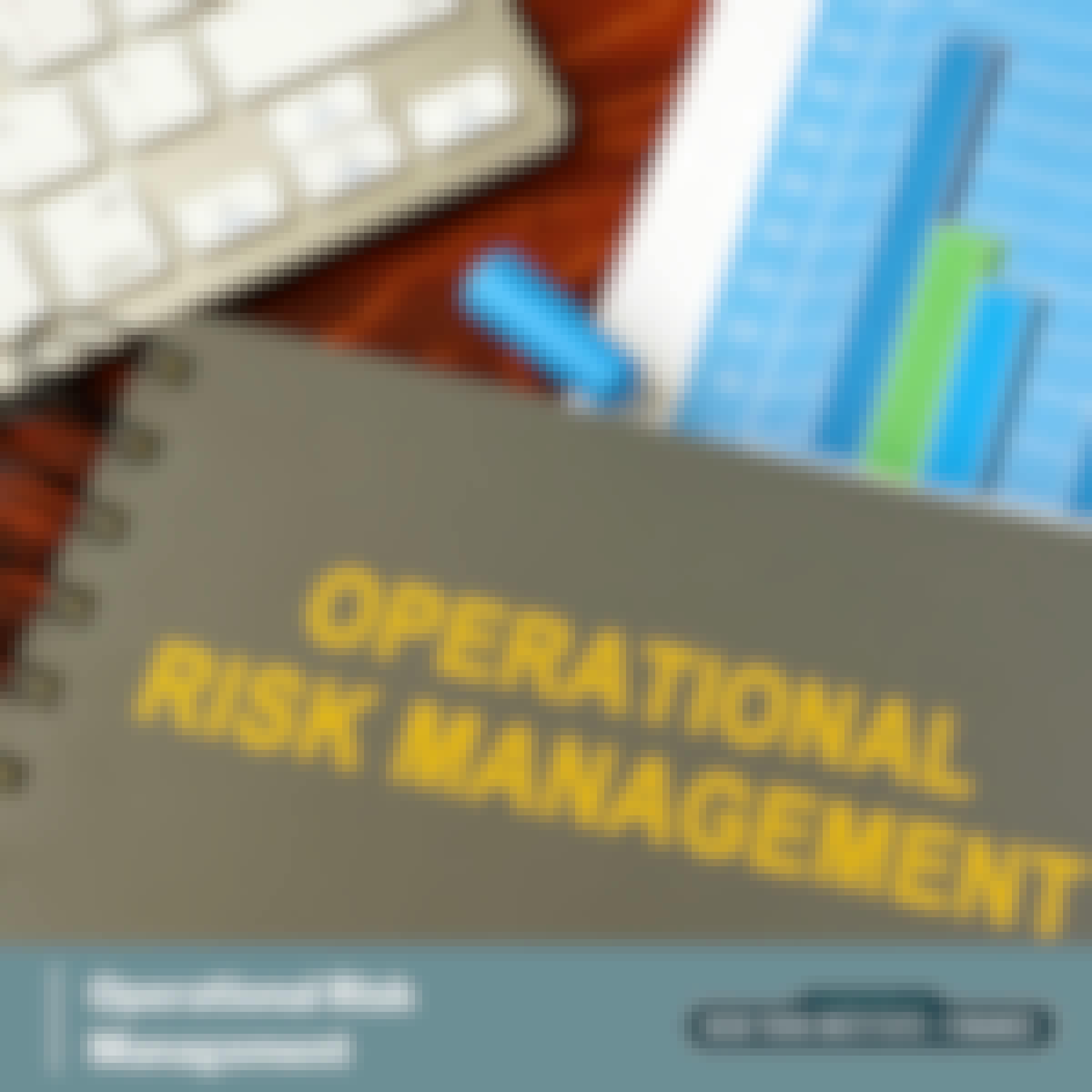Filter by
The language used throughout the course, in both instruction and assessments.
Explore the Risk Management Course Catalog

New York Institute of Finance
Skills you'll gain: Leadership and Management, Risk Management, Finance, Probability & Statistics, Strategy, Financial Analysis, Strategy and Operations, Operations Management, Statistical Tests, Business Analysis, Business Process Management, Operational Analysis, Market Analysis, Financial Management, Statistical Analysis, Regulations and Compliance, Banking, General Statistics, Operating Systems, Critical Thinking, Probability Distribution, Statistical Visualization, Market Research

Coursera Project Network
Skills you'll gain: Leadership and Management, Risk Management

Columbia University
Skills you'll gain: Finance, Risk Management, Probability & Statistics, Leadership and Management, Mathematics, Investment Management, Securities Sales, Securities Trading, Computer Programming

New York Institute of Finance
Skills you'll gain: Leadership and Management, Risk Management, Finance, Financial Analysis, Financial Management, Market Analysis, Operating Systems, Regulations and Compliance, Statistical Tests, Statistical Visualization

Skills you'll gain: Project Management, Strategy and Operations, Leadership and Management, Communication, Business Communication, Collaboration, Agile Software Development, Software Engineering, Entrepreneurship, Scrum (Software Development), Planning, Supply Chain and Logistics, Change Management, Finance, Organizational Development, Product Management, Risk Management, Budget Management, Influencing, Culture, Emotional Intelligence, People Management, Problem Solving, Procurement

Skills you'll gain: Leadership and Management, Risk Management
 Status: Free
Status: FreeCoursera Instructor Network
Skills you'll gain: Project Management

New York Institute of Finance
Skills you'll gain: Leadership and Management, Operations Management, Risk Management, Strategy and Operations, Business Process Management, Strategy, Business Analysis, Operational Analysis, Finance, Probability & Statistics

University of Geneva
Skills you'll gain: Correlation And Dependence, Finance, Investment Management, Leadership and Management, Market Analysis, Risk Management, Financial Analysis, Financial Management, Probability & Statistics, Statistical Analysis

University of California, Irvine
Skills you'll gain: Leadership and Management, Risk Management, Strategy

Kennesaw State University
Skills you'll gain: Risk Management, Leadership and Management, System Security, Security Software, Software Security, Strategy, Cyberattacks, Network Security, Security Engineering, Strategy and Operations

University of California, Irvine
Skills you'll gain: Leadership and Management, Risk Management
Risk Management learners also search
In summary, here are 10 of our most popular risk management courses
- Risk Management: New York Institute of Finance
- Investment Risk Management: Coursera Project Network
- Financial Engineering and Risk Management: Columbia University
- Introduction to Risk Management: New York Institute of Finance
- Google Project Management:: Google
- Compliance and Risk Management: HRCI
- Project Risk Management: Coursera Instructor Network
- Operational Risk Management: Frameworks & Strategies: New York Institute of Finance
- Portfolio and Risk Management: University of Geneva
- Introduction to Cybersecurity & Risk Management: University of California, Irvine










